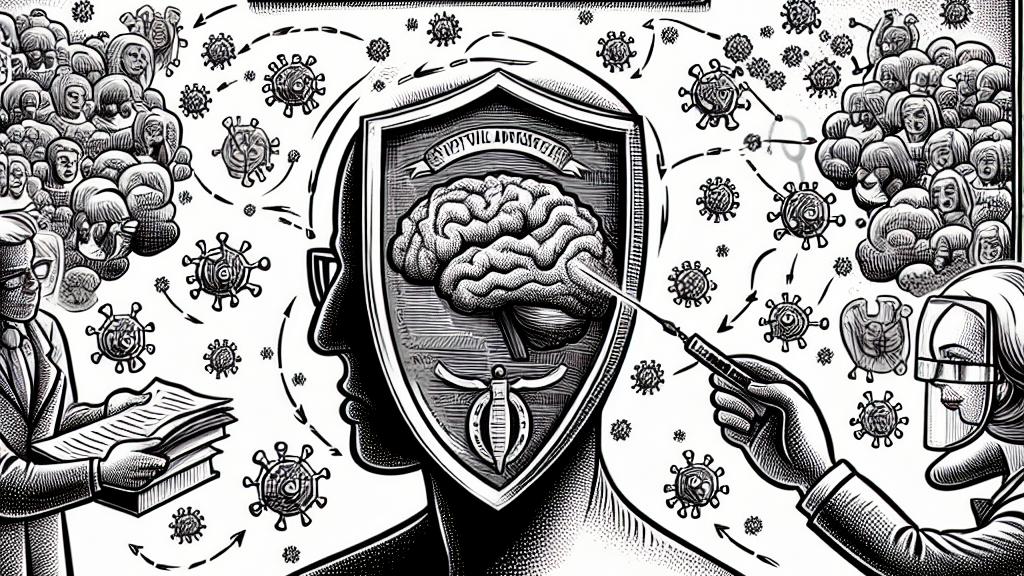Attempt to Protect People from Misinformation and Conspiracy Theories Through Cognitive Inoculation
Overview
- Cognitive inoculation acts as a vital mental armor against the onslaught of misinformation and conspiracy theories.
- Pioneered by the innovative thinker Sander van der Linden, this method parallels vaccine strategies to build mental resilience.
- Its real-world applications, supported by robust psychological insights, shine a hopeful light on combating the challenges of fake news.

Understanding Cognitive Inoculation
Cognitive inoculation is a groundbreaking concept developed by psychologist Sander van der Linden at the University of Cambridge. Imagine this idea as a mental shield; just as vaccines prepare our bodies to fight diseases, cognitive inoculation equips us to combat misinformation and conspiracy theories. The process involves introducing individuals to stripped-down, less potent forms of misinformation, alongside warnings that highlight the potential dangers of succumbing to such narratives. For instance, think of how a mild exposure to allergens can strengthen your immune response. Similarly, this exposure enhances critical thinking, enabling individuals to more easily distinguish between facts and deceit. In a world where misinformation spreads like wildfire, this cognitive training empowers people, encouraging them to critically analyze the information bombarding them daily.
Real-World Applications and Effectiveness
The application of cognitive inoculation has proven effective across diverse contexts, yielding impressive results. In one revealing study, participants who were alerted to misinformation about climate change displayed a remarkable ability to refute false claims later presented to them. Furthermore, the innovative online game 'Bad News' immerses players in the role of a fake news creator. By doing so, it effectively teaches them the manipulative tactics often employed in the misinformation landscape, providing a hands-on learning experience. As players navigate through the game's challenges, they not only engage but also gain critical insights into recognizing and resisting false narratives. Additionally, research supports that educational videos detailing fake news strategies significantly enhance viewers' skills in discerning misleading content. Each example illustrates the versatility and real-world relevance of cognitive inoculation, highlighting its potential to cultivate a well-informed public that can stand resilient against the tide of misinformation.
Challenges and Criticisms
Despite its promise, cognitive inoculation faces substantial challenges and some valid criticisms. Scholars like Gordon Pennycook from Cornell University express concern that while inoculation techniques impart important skills, they may inadvertently create mistrust towards legitimate news sources, which is counterproductive in the fight against misinformation. Moreover, this approach often places the onus squarely on individuals, neglecting the significant role that social media platforms play in propagating false information. To effectively tackle misinformation, a more comprehensive strategy must be embraced—one that balances individual resilience-building with systemic changes in media literacy and platform accountability. Acknowledging the intricate nature of misinformation is crucial; thereby, a multi-faceted, collaborative effort among individuals, educative institutions, and media platforms is essential. This harmonious approach can foster an environment where critical thinking thrives, ensuring that society can navigate the complex and often confusing information landscape we face today.

Loading...